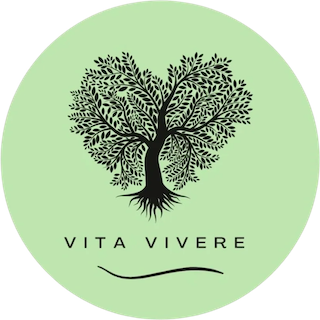Holistic Therapy: The Way to Holistic Health
Holistic therapy is an approach to health and healing that considers the individual as a whole organism, not just a collection of parts. It encompasses physical, emotional, mental and spiritual health and seeks to achieve a balance between these aspects to achieve true healing. At the heart of the holistic approach is the belief that the body and mind are interconnected and that any discomfort or illness can be reflected not only on a physical level, but also on an emotional or mental level.
What is holistic therapy?
Holistic therapy is not only a healing method, but also a philosophy that takes a holistic view of human existence. It does not focus on symptoms alone, but seeks to identify and treat the underlying causes of illness. This approach requires the active participation of the patient in the healing process, using various techniques to achieve harmony between body, mind and spirit.
Principles of holistic therapy include:
1.Wholeness: A person is not just a set of physical symptoms, but a complex of physical, emotional, mental and spiritual states.
2. Nature plays an important role in restoring balance and well-being.
3. Self-healing: The body has an innate ability to heal itself, given the right conditions.
4.Prevention: rather than focusing solely on treating illness, a holistic approach emphasises the importance of prevention and maintaining a healthy lifestyle.
Types of holistic therapy
There are several types of holistic therapies, each with its own unique meaning and application. Some of the most common include:
Aromatherapy: This therapy uses essential oils to improve a person's physical and emotional state. The oils are extracted from plants and used to relax, relieve stress and stimulate the immune system.
Massage therapy: Massages not only relieve physical tension, but can also improve the emotional state and stimulate recovery processes in the body.
Yoga and meditation: Yoga combines physical exercise, breathing techniques and meditation to balance the body and mind. It helps to reduce stress and improve physical health.
Acupressure and acupuncture: These methods involve stimulating specific points on the body to restore energy balance and improve health. They are often used to relieve pain and stimulate natural healing processes.
Nutritional therapies: Restoring balance to the body can also be achieved through proper nutrition. Nutritional supplements, healing diets and natural products can help maintain good health and treat a variety of conditions.
Reiki: This is a form of energy healing in which the practitioner places their hands on or near the patient's body to transfer healing energy to aid the healing process.
Traditional medical systems: Chinese medicine, Ayurveda and other traditional systems are based on a holistic approach and view the body and mind as inextricably linked.
Holistic Therapy and Modern Medicine
Many people tend to see holistic therapy as an alternative to modern medicine, but in fact more and more doctors and therapists are recognising the benefits of integrating holistic approaches into traditional treatment. Modern medicine has its strengths when it comes to diagnosing and treating acute conditions and diseases, but it often does not focus on overall health and prevention.
Combining holistic methods with conventional medicine can offer significant benefits by improving not only the physical condition, but also the emotional and mental well-being of the patient. For example, a patient with chronic pain may benefit from a combination of pain medication and relaxation techniques such as yoga or meditation.
Benefits of holistic therapy
Achieving balance and harmony: Holistic therapy aims to create an inner balance between body, mind and spirit. It can help improve overall physical well-being and reduce stress and anxiety.
Improving the immune system: Using natural methods and therapies can strengthen the immune system by boosting the body's natural defences.
Prevent disease: One of the main principles of holistic therapy is prevention. Maintaining a healthy lifestyle and regular therapies help to prevent various diseases before they develop.
Emotional healing: Emotional and mental health is just as important as physical health in holistic therapy. Techniques such as meditation, yoga and essential oil therapy can help reduce stress, depression and anxiety.
Long-term results: A holistic approach often produces long-term results by focusing not only on quick symptom relief, but also on establishing lasting lifestyle changes that lead to better health.
When holistic therapy is not appropriate
While there are many benefits to holistic approaches, they are not appropriate in all cases. For serious and acute conditions, such as infections, injuries or severe chronic diseases, conventional medicine may be necessary. It is important that patients consult with doctors and specialists to choose the most appropriate approach for their condition.
Holistic therapy is one of the many approaches to health that considers the human being as a whole organism. It can offer effective treatment and prevention of disease through a variety of methods that focus on the balance between body, mind and spirit. Although it does not replace traditional medicine, holistic therapy can complement and enhance the healing process, resulting in improved physical, emotional and spiritual well-being.
By choosing holistic methods, individuals can gain a better understanding of their health and lifestyle and learn to live in harmony with themselves and their bodies.



